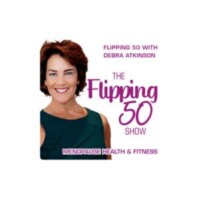Holistic Healing for a Happier Mind
If you’ve ever been in your doctor’s office for a health issue that’s difficult to pinpoint, you know: Western medicine prefers prescribing pills for every ailment, including for side effects created by taking medications, rather than standing back and considering, what’s the root cause of these symptoms? That’s where holistic healing comes in.
In 2008, Dr. Terri DeNeui, DNP, APRN, ACNP-BC founded EVEXIAS Health Solutions with one goal: To offer an approach to healthcare that looks at the body holistically and addresses disease proactively at its root. In the years since, she’s built a powerhouse integrative health company that is centered on turning hormone havoc into hormone harmony.
When it comes to complex health complaints, mental health conditions like depression and anxiety are at the top of the list. According to the American Psychiatric Association, “anxiety and depression are two of the most common mental health conditions experienced by adults in the United States,” and around 15.8% of U.S. adults reported taking prescription medication for their mental health in 2019, according to the CDC.
And yet, under the guiding philosophy of holistic medicine, there are other ways to treat the moody blues, or at least a wider range of approaches to complement traditional treatment for depression and anxiety.
The Root of Mood
While many mood disruptions can be situational, or a response to unexpected outside circumstances, some of us carry genetic markers that increase the risk of developing chronic depression or anxiety. Either way, studies show that your overall health can impact your resilience in the face of stress.
So, what enhances overall health? To answer that question, one should look deep in the body at key systems that keep us going like the endocrine system, a network of glands that make and release hormones.
Hormones are essential to our wellbeing and have a dramatic influence on mood. Hormones are the chemical messengers that play a key role in regulating our moods and emotions. So, when you’re feeling low or anxious, a look at your hormone levels may be the most informative first step towards feeling better. Hormone fluctuations, particularly in women, have been linked to a host of conditions disrupt mental health, including Premenstrual Dysphoric Disorder (PMDD), Postpartum Depression, Menopausal Depression, ADHA, and more.
The Hormonal Keys to Happiness
While all hormones influence our emotions and moods, it’s the dysregulation of certain hormones that directly impact mood and may spark anxiety and depression when out of balance.
Estrogen
Along with maintaining your sexual and reproductive health in women, estrogen regulates moods and mental health. When levels are normal, estrogen increases the levels of the key hormone that controls mood, serotonin, and modifies the production and effect of endorphins, which play a crucial role in encouraging feelings of happiness. When estrogen levels fall, like during a woman’s menstrual cycle or during menopause, mood takes a significant hit.
Though a hormone typically associated with women, estrogen is also an essential component in male systems. Estrogen dips as men age, and this can lead to fatigue, anxiety, and irritability.
Progesterone
Progesterone is another important hormone for healthy reproductive functioning in women, as it is necessary to prepare the female body for a pregnancy. It also influences mood by increasing production of the neurotransmitter GABA, which has anxiety-reducing affects, and stabilizing the activity of other neurochemicals like serotonin and dopamine, which can reduce symptoms of moodiness.
Like estrogen, studies show that fluctuations in progesterone in both men and women, particularly in times of reproductive transition like puberty, during menstrual periods, pregnancy and postpartum, and menopause, have been connected to mood and anxiety disorders.
Testosterone
Testosterone is another vital sex hormone, typically associated with male reproduction, muscle mass, and sex drive. Along with to these functions, testosterone helps regulate mood in both men and women, to a lesser degree. In fact, testosterone increases the release of the pleasure neurotransmitter dopamine.
In response to stress, injury, chemotherapy, obesity, or male menopause, testosterone levels may plummet. As a result, men may develop Irritable Male Syndrome (IMS). IMS is a behavioral state of nervousness, irritability, lethargy, and depression that occurs in adult male mammals following withdrawal of testosterone. Women may also feel affects like decreased libido, sleeplessness, fatigue, as well as irritability, depression, or anxiety.
Remedying Mood Naturally
Mental health conditions are a class of diagnoses that are most often managed with medications. However, this approach often covers up the core issue and keeps the patient on a prescription medicine treadmill. Medication may be necessary for some patients, but holistic healing approaches that address hormonal imbalances and optimize overall health may help to heal mental health issues from within.
Diet is a great starting point if you’re suffering with anxiety and depression. Proper nutrition and the integration of mood-enhancing foods full of omega-3s, like fish, and antioxidants, like berries and dark chocolate, are baseline practices for naturally supporting mood. Nuts, seeds, whole grains, and leafy greens are also essential for the body. Providing it with the necessary fats, vitamins and minerals it needs to thrive.
Along with eating a well-rounded diet and addressing nutritional deficiencies with supplements, integrating herbal remedies into your routine may also enhance mood. St. John’s wort, recognized for its depression-fighting benefits, chamomile and saffron, which have shown promise as antidepressants, and lavender oil, which may aid with sleep and relaxation, are all great natural remedies for mood concerns.
Exercise is another effective and natural way to keep your hormone levels in check and boost overall wellbeing. In fact, exercise has shown to reduce levels of stress hormones and boost production of endorphins, brain chemicals that brighten mood.
In conjunction with addressing diet and lifestyle, regularly seeing a mental health counselor and practicing mindfulness meditation are also highly effective natural strategies for addressing anxiety and depression.
Remember to Check Your Hormones
Mental health, though often treated as a singular issue, is typically a symptom of a larger, whole-body imbalance.
Lifestyle changes and holistic healing natural remedies can go far in improving hormone levels and alleviating mood issues. However, sometimes the only solution to anxiety and depression is to understand hormone balance and fully optimized them.
In this case, working with a medical provider to get a hormone panel and, if warranted, considering hormone replacement therapy, may be just the ticket to a balanced mood and well-being, deep within.
Learn More About Holistic Healing Remedies for Mood
EVEXIAS Health Solutions is a leading provider of integrated wellness solutions. Our network of providers are experts at addressing myriad ailments and health conditions. Find an EvexiPEL provider near you today! Learn more about ways you can alleviate anxiety and depression and boost your overall quality of life through a holistic healing approach.
Author: Sandra Goodacre, DO









comments
Add comment